25 Aug 2021 - {{hitsCtrl.values.hits}}
- The efficacy of the gas in a domestic gas cylinder has been brought down since April this year by introducing a Propane rich gas composition
- Although Laugfs has now won the month-long battle and a Litro price hike is also on the cards consumers have to bear the increased price for the domestic gas cylinder that contains poor quality gas
Following the ‘manmade’ gas shortage in the country there is public opinion to say that this was allegedly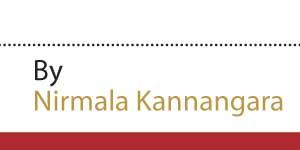 manipulated by the Ministry of Trade and the State Ministry of Cooperative Services, Marketing Development and Consumer Protection, to aid the gas companies to get a LPG price hike despite the Consumer Affairs Authority’s strong objection.
manipulated by the Ministry of Trade and the State Ministry of Cooperative Services, Marketing Development and Consumer Protection, to aid the gas companies to get a LPG price hike despite the Consumer Affairs Authority’s strong objection.
On July 22, the cabinet of ministers approved a maximum retail price of Rs.1150 for the controversial 18 litre gas cylinder. At this press briefing Minister of Trade Bandula Gunawardena and the State Minister of Cooperative Services, Marketing Development and Consumer Protection Lasantha Alagiyawanna said that it was a ‘victory’ for them to get cabinet approval to bring down the price of the 18 litre gas cylinder by Rs.240, in a bid to ensure that consumers are not affected by the increasing of gas prices.
However, the Consumer Affairs Council (CAC) in its recommendation to the Consumer Affairs Authority (CAA) on July 17, regarding the maximum retail price for 18 litre cylinder, referred to Ministry of Trade’s cabinet memorandum dated June 21, 2021 that it has made a request to consider the price increase of LPG to which the cabinet decided, on June 22, not to approve a price revision.
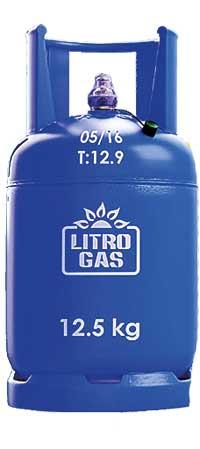 The CAC’s recommendation further states, ‘the cabinet has taken this decision in the interest of the nation and the general public of the country, and it is the prime duty of the Council to consider the said cabinet decision as it has been taken to safeguard the rights of the consumers as per the CAA Act No:9 of 2003’.
The CAC’s recommendation further states, ‘the cabinet has taken this decision in the interest of the nation and the general public of the country, and it is the prime duty of the Council to consider the said cabinet decision as it has been taken to safeguard the rights of the consumers as per the CAA Act No:9 of 2003’.
“It was a known secret that there was a ministerial lobby to increase the gas prices. Even there were times, they wanted our Executive Director Thushan Gunawardena to be removed from the Board as it was he who stood firm against their proposals,” reliable CAA sources said.
Although Laugfs has now won the month-long battle and a Litro price hike is also on the cards consumers have to bear the increased price for the domestic gas cylinder that contains poor quality gas.
According to Litro sources, the poor quality gas has no efficacy comparing to the gas that was supplied earlier.
According to a source, who wished to remain anonymous, the efficacy of the gas in a domestic gas cylinder has been brought down since April this year by introducing a Propane rich gas composition. The sources further revealed how the Butane rich gas composition - Propane/ Butane ratio 20:80 respectively- had a longer lifetime compared to the newly introduced 50:50 composition.
“From April, Litro and Laugfs made a change to the composition by increasing the Propane percentage to 50 from 20 and reduced the Butane percentage to 50 from 80. For a tropical country like ours, the efficacy of the gas is higher when we have a higher Butane percentage with a lower Propane percentage,” sources claimed.
The Consumer Affairs Authority - the authority that safeguards the rights of the consumers- said that neither Litro nor Laugfs, had obtained approvals from Sri Lanka Standard Institute (SLSI) to change the LPG composition ratio.
According to Litro sources, this change could have an adverse impact on the lives and properties of consumers as well.
Meanwhile, Executive Director CAA Thushan Gunawardena while participating in several media discussions accused the SLSI of not taking adequate steps to enact new regulations to control the composition of gas which is their bounden duty to safeguard the people of this country.
“It is their primary duty to ensure the quality and safety of the product. This is a disaster,” Gunawardena has claimed repeatedly.
Meanwhile the CAA sources said that it was surprising how Minister of Trade Gunawardena and State Minister of Cooperative Services, Marketing Development and Consumer Protection Alagiyawanna have failed to instruct Litro and Laugfs Gas when changing the LPG composition that now risks the lives and property of consumers. This was despite several requests made to them to intervene regarding the issue associated with gas.
This newspaper is in possession of an e-mail sent by CAA Executive Director Gunawardena on July 27 to both Minister Gunawardena and State Minister Alagiyawanna regarding the questionable composition of the LPG.
The e-mail states further, ‘I would now like to draw your attention to the below emails referring to the composition of the LPG. Various experts on the subject indicate that a propane rich mixture is only used for industrial purposes or during certain specific cases as outdoor propellant and could pose a serious threat to life and property in a tropical country like Sri Lanka.
‘Test results of the samples taken by CAA confirms a propane rich mixture in Litro and Laugfs gas cylinders and the various attempts made by Litro gas to conceal the composition by way of writing documents to CAA to mislead the regulator is of a serious concern.
‘The dangers of a Propane rich mixture as domestic gas is a commonly known established fact and it is time that the same route taken to price 18L be used to publish a gazette post consulting experts – Sri Lanka Standards and Universities on the composition of LPG to suit our climate conditions to ensure the safety and efficacy of the domestic gas cylinder. If we do not immediately regulate the composition of LPG there is an imminent danger to life and property which is clearly given as ‘objects of the authority’ in Section 7(a) of the CAA Act No: 9 of 2003.
‘I hereby notify all concerned of the danger of an industrial gas- rich mixture being used as domestic LPG. Failure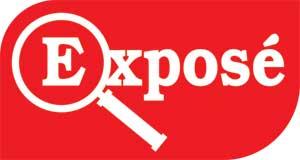 to take immediate tangible action will expose all concerned for the negligence of fiduciary duties as per CAA Act’.
to take immediate tangible action will expose all concerned for the negligence of fiduciary duties as per CAA Act’.
By letter dated April 28, 2021, Chairman/CEO Litro Gas Lanka Ltd Anil Koswatte, further signed by Director HSE and Quality Assurance, Jayantha Basnayake wrote to Director-General Corporative Service, Marketing Development and Consumer Protection, U.G. Ratnasiri, informing that the Butane/Propane composition in the 12.5kg cylinder is 80:20 and in the new pack -18L- the composition ratio is 50: 50 respectively which has an economical value as the latter can be used for a longer period.
“Being a government institution, they tried to hoodwink yet another government entity which is also their Regulator. That was why we got the composition of the gas both in Litro 12.5kg and 18L cylinders as well as Laugfs checked in an internationally recognised laboratory to see whether Litro’s claim was correct,” sources added.
The two lab reports of Intertek- Caleb Brett Laboratory which is an internationally recognised laboratory, on the efficiency of LPG in all three cylinders. The reports have revealed that Litro as well as Laugfs have filled both gas cylinders with the same composition, but in order to discourage the consumers from purchasing 12.5kg cylinder have promoted the 18 litre cylinder.
According to the first Intertek- Caleb Brett Laboratory report dated April 27, 2021, (Lab Ref No: CBL/448/04/2021 and Sample No: 20212674) certified by Head of Analytical, Intertek laboratory, the liquid volume of Butane / Propane composition of the 12.5kg cylinder is 49.05% and 48.57% respectively.
The second report dated April 28, 2021, (Lab Ref: CBL/447/04/2021 and Sample No:20212673) certified by the same officer, the liquid volume of Butane/ Propane composition of the 18 litre cylinder is 51.68% and 47.71% respectively.
View of an expert in chemical engineering
Meanwhile, the Daily Mirror contacted an expert in Chemical Engineering to find out how risky it is to increase the Propane percentage in a domestic gas cylinder in a tropical country. This percentage since April has been increased from 20% to 50%.
According to the expert, who did not wish to reveal her identity, a propane rich mixture as a domestic gas does not ensure any benefit and efficacy to Sri Lanka.
“Propane has a lower boiling temperature, which is at -42° vs -0.4°C for butane. Then propane will continue to vaporize – turn to gas – even in colder climates. This is why the percentage ratio of propane and butane in LPG gas mixtures may be increased during the winter season in some countries. But In Sri Lanka (hot climate) this is not the issue. We can use any ratio,” the sources said on strict condition of anonymity.
According to her the percentage of propane and butane in the LPG gas mixture in different countries is as follows as per their climate condition.

The sources further said that propane has high combustion (burning) efficiency as low molecular weight.
“This depends on the (type of) gas burner and then a significant difference cannot be expected. However a high vaporization capacity in propene may help for industrial or trade applications, where high gas flowrate is required. In household applications, any difference may not be observed,” sources added.
When asked whether the world price of Propane is cheaper than Butane which could have been the reason to increase Propane percentage and decrease Butane percentage, the expert source said that Propane prices could be less in the world market.
“The question is the new cylinder which has 18 litres (which is difficult to measure and needs the temperature and pressure to define the amount of gas: As volume is changed with temperature and pressure). We can estimate the amount of energy contained in the new cylinder compared to the old one. The cost of energy is the ultimate requirement for customers. In my observation weight wise there is a big difference. The conventional cylinder has 12.5kg and the new cylinder has only 9.6kg. Even though propane has high combustion efficiency and high heating values (HHV and LHV) compare to Butane, a big advantage cannot be expected for customers with such a high mass difference between cylinders for a small price reduction. However, it needs more accurate calculations to clarify this issue. It looks like this change was made to gain profits” the sources added.
“Although Litro is accused of changing the composition, from the time I took over office as Chairman, I wanted to establish this scientifically. The SLSI has never given us any instruction what standard we should maintain of the gas composition other than the guidelines how to maintain the standard of the pressure of gas cylinders - Litro Gas Lanka Chairman Teshara Jayasinghe"
Litro Gas Lanka Chairman Teshara Jayasinghe told the Daily Mirror that Propane and Butane ratio from early days was 30:70 which was the norm, but the composition could be varied by 5%.
“Although Litro is accused of changing the composition, from the time I took over office as Chairman, I wanted to establish this scientifically. The SLSI has never given us any instruction what standard we should maintain of the gas composition other than the guidelines how to maintain the standard of the pressure of gas cylinders,” Jayasinghe claimed.
According to Jayasinghe, Litro fills its cylinders from the cargo they import, but any changes are not made to it upon its arrival to the country.
“I got a random sample done two weeks ago on the quality of the product and the results tally with the certification of Geo-Chem on the quality of the product,” Jayasinghe said.
He further said that at his first Litro Board Meeting he had wanted to remove the 18L cylinder from the market.
“The already filled 18L cylinder will be in the market, but we will not produce this in future,” he added.
When asked as to why Litro being a government entity requested a price increase for its products, Jayasinghe said that Litro sells the 12.5kg cylinder, at a loss of Rs.825.
“World prices are escalating and we will further increase our losses if we are not allowed to increase the prices. In July alone we have incurred a loss of Rs.1.2 billion and we estimate an increase of global prices further and in few months, so we will become one of the highest loss making entities in the country,” Jayasinghe claimed.
According to Jayasinghe, the last LPG price revision took place in July/August 2019 when the Saudi-Aramco price was US $ 363 per M/t and in July/ August 2021, price has gone up to US$ 620 per M/t.
“Comparing to these prices, anyone can see how difficult it is, for us to sell a cylinder at a loss of Rs. 825 from a 12.5 kg. The CAA has to revise the prices once in two months and for not revising the prices for the past 24 months, we are at a complete loss,” he added.
Although this newspaper requested Jayasinghe to submit the prices at which they purchased gas in 2020 to compare how much profits they have earned when the Saudi-Aramco prices were slashed during the outbreak of Covid 19, Jayasinghe said that he cannot share such details.
But the CAA sources shared price details with the Daily Mirror. These details show how low the Saudi-Aramco prices were in 2020 although the benefit was not passed on to the consumers.
The world prices of a M/t in January 2020 was US $ 582, US$ 533 in February, US$ 465 in March, US$ 237 in April, US$ 340 in May, US$ 336 in June, US$ 346 in July, US$ 351 in August, US$ 358 in September, US$ 378.50 in October, US$ 43 in November and US$ 457 in December.
“In the year 2020 prices were much lower than that of 2019 prices, but Litro gas never passed the benefit to its consumers although they are now requesting for a price hike claiming they are losing revenue,” CAA sources said.
When inquired from Jayasinghe whether Litro would still go ahead with its plan to fill Laugfs cylinders, Jayasinghe said that the media had misinterpreted what he had said.
“What I said was that Litro can support customers irrespective of the colour of the cylinder for a limited number of days. We have informed Laugfs that we can sell bulk gas to them in Sri Lankan rupees on cash basis if they do not have foreign currency. As of now the Ceylon Petroleum Corporation (CPC) produces gas as a by-product and supplies both Litro and Laugfs 50% each of it. We are willing to give our 50% to Laugfs for a shorter period until they buy from the world market. But the CAA should make sure that this gas will be filled to domestic cylinders, as it is said, that Laugfs fills the industrial cylinders, but not the domestic cylinders,” he added.
“We are planning to meet the new Litro Chairman who is young and dynamic and has a huge knowledge of this subject. We are thankful to Litro for coming forward to supply gas to Laugfs, on bulk, for Sri Lankan Rupees, but still we will have to pay the world price - Laugfs Gas PLC Deputy Chairman Thilak de Silva"
When asked as to how Litro can fill Laugfs without entering into a sales agreement, Jayasinghe said that the CAA was requested to negotiate with Laugfs to support yellow cylinder customers.
When contacted CAA Executive Director Gunawardena to know whether they would negotiate with Laugfs as requested by Litro, Gunawardena said that it is the two companies that have to enter into a business agreement and it was not the CAA’s duty to do so.
“We are the regulators, but cannot negotiate business agreements,” Gunawardena added.
When asked as to when Laugfs is planning to supply gas to the market without any shortage, Deputy Chairman Laugfs Gas PLC, Thilak de Silva said that plans are afoot to release their yellow cylinders to the market soon.
“We are committed to serve our clients and ensure there is no shortage. Litro Gas came up with a solid plan to overcome the gas shortage faced by Laugfs. We are planning to meet the new Litro Chairman who is young and dynamic and has a huge knowledge of this subject. We are thankful to Litro for coming forward to supply gas to Laugfs, on bulk, for Sri Lankan Rupees, but still we will have to pay the world price. Like how Litro has come forward to help us out now, Laugfs is happy to remind as to how we supplied gas to Shell when they were bombed during the war. Helping each other at a time of a crisis is what we should practise as a nation and I am thankful to Litro new Chairman Theshara Jayasinghe for his kind gesture,” De Silva said.
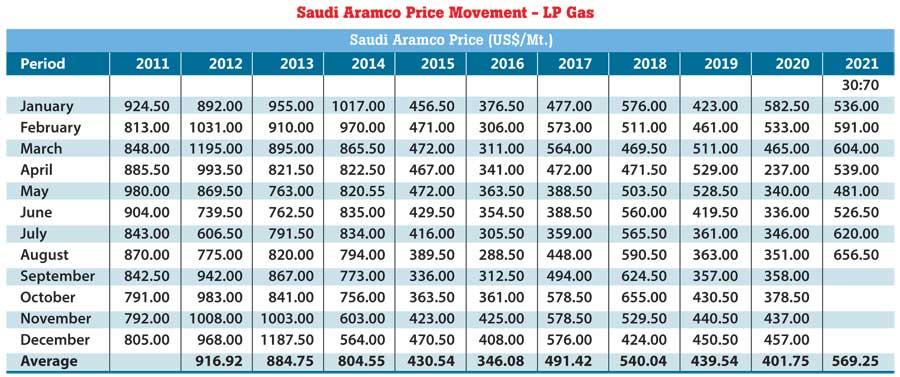
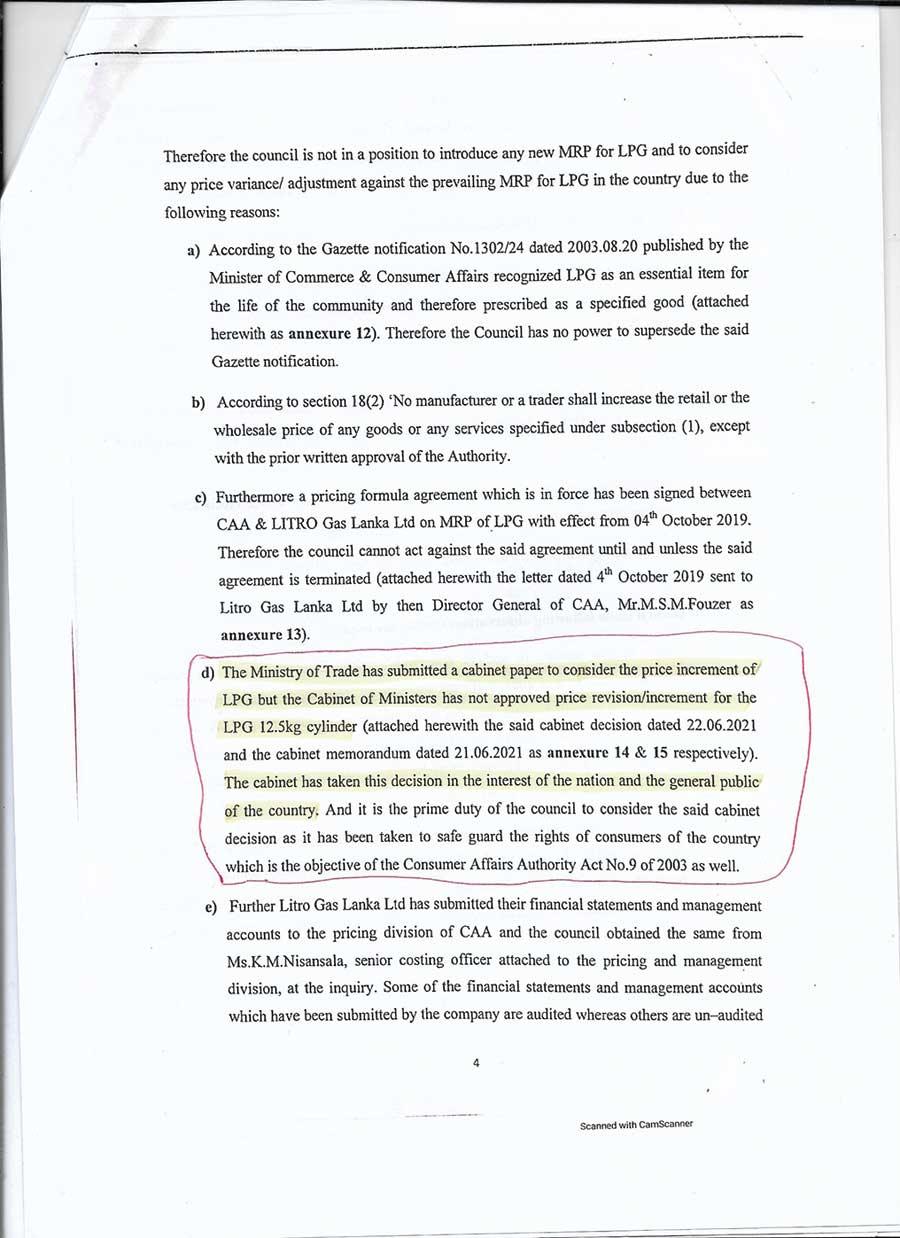
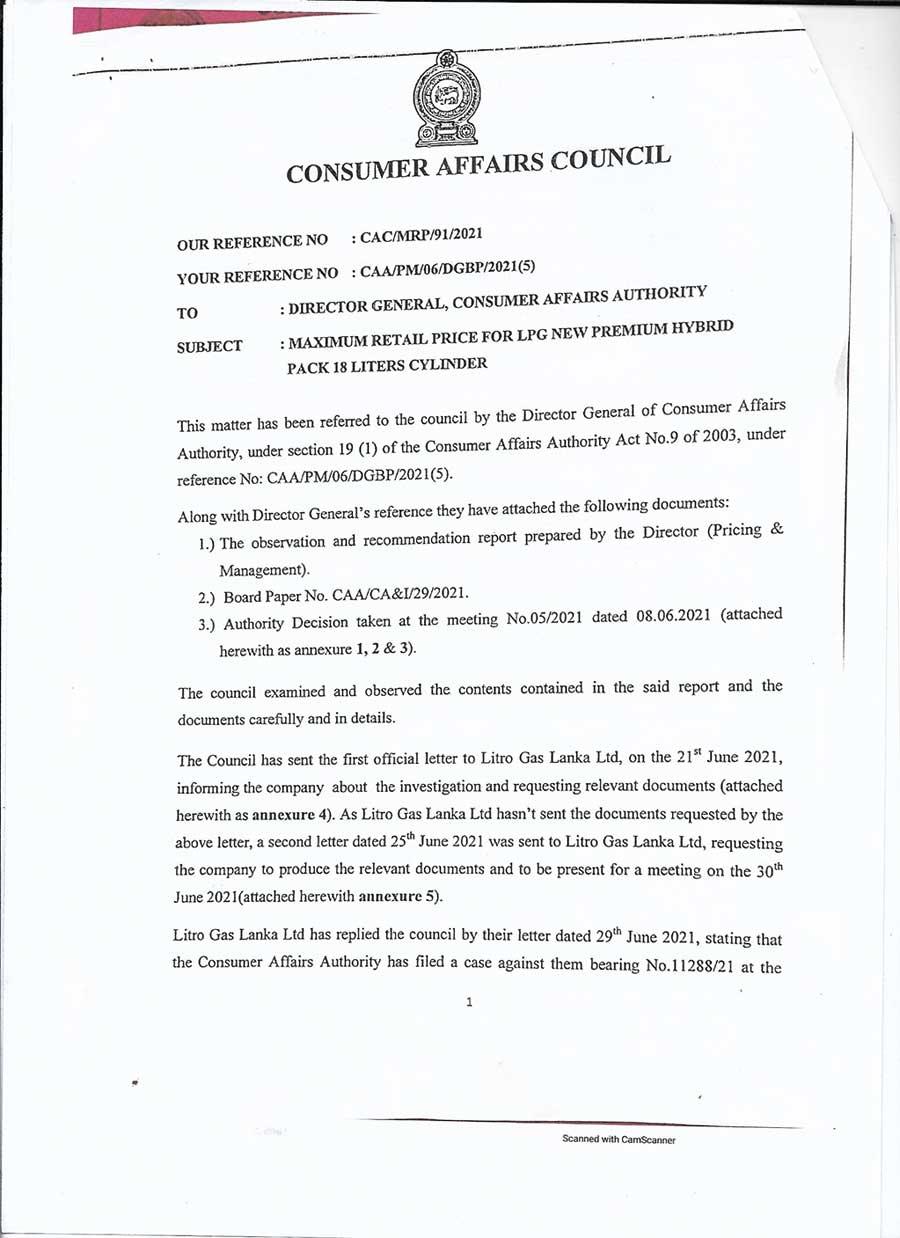
23 Dec 2024 7 minute ago
23 Dec 2024 38 minute ago
23 Dec 2024 44 minute ago
23 Dec 2024 52 minute ago
23 Dec 2024 1 hours ago